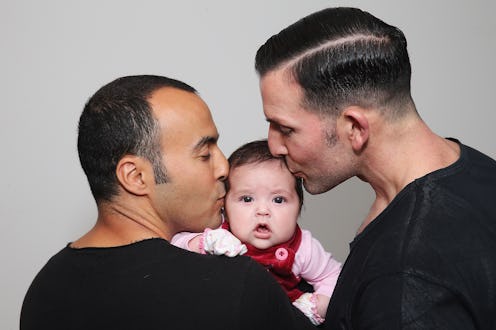
Kentucky Judge W. Mitchell Nance has stated that he will not take adoption cases into consideration if the adults are gay. The judge, who serves in family court for Barren and Metcalfe counties, has refused to hear gay adoption cases by claiming that a gay or lesbian person adopting a child would be antithetical to the child's best interest.
Louisville newspaper The Courier-Journal reported that Nance voiced his decision in an order on Thursday by saying that "under no circumstance" would "the best interest of the child be promoted by the adoption by a practicing homosexual." To justify his move, he referred to a judicial ethics rule that requires a judge to remove himself from a case in the situation that he carries a bias. Louisville lawyer Dan Canon told the Courier-Journal, however, that if a judge was unable to carry out his legal obligations due to a personal prejudice, such a judge ought to resign.
During a phone interview with the Courier-Journal, Nance refused to address criticism of his decision and said, "I stand behind the law I have cited, the matter of conscience I addressed, and the decision I have made."
The judge's case is strikingly similar to Rowan County clerk Kim Davis' debacle when she refused to issue licenses for marriage to gay and lesbian couples after gay marriage was legalized in June 2015. Davis lost a lawsuit against her carried out by couples who were represented by the American Civil Liberties Union. She maintained her position in a September 2015 statement, "I intend to continue to serve the people of Rowan County, but I cannot violate my conscience."
Nance faces a considerable amount of criticism from fellow citizens for his decision to recuse himself from gay adoption cases. Some say he should step down; others have called his move "disgusting." Furthermore, Nance's outdated views directly clash with recent studies on adoptive families. In fact, a finding by the University of Kentucky itself suggests children of same-sex couples do not have a disadvantage or unequal grounding compared to children of heterosexual couples. Summarized, the study shows how what happens within the family — not the sex of the parents — determines whether a child will be a functioning and happy human being.
Still, if Nance is so concerned about children's best interest — a noble cause, indeed — he can do so by investing in better policies and legal decisions that do not repeat baseless and refuted tropes about same-sex couples — that's a good place to start.